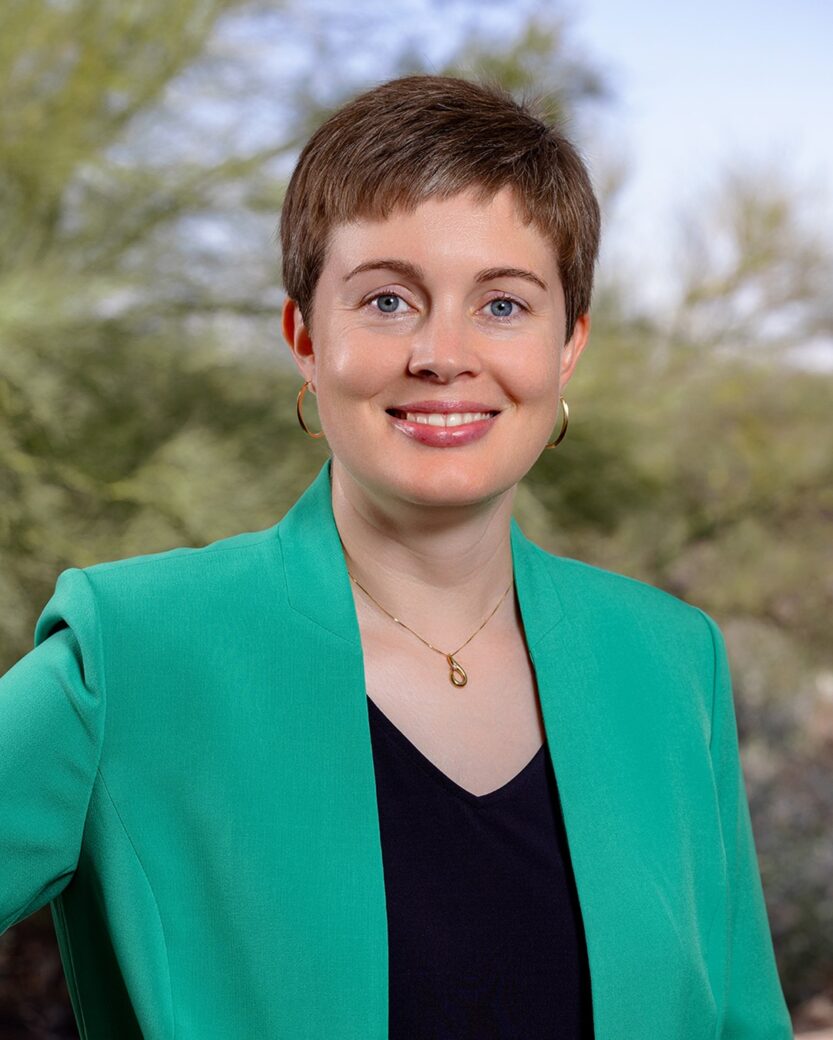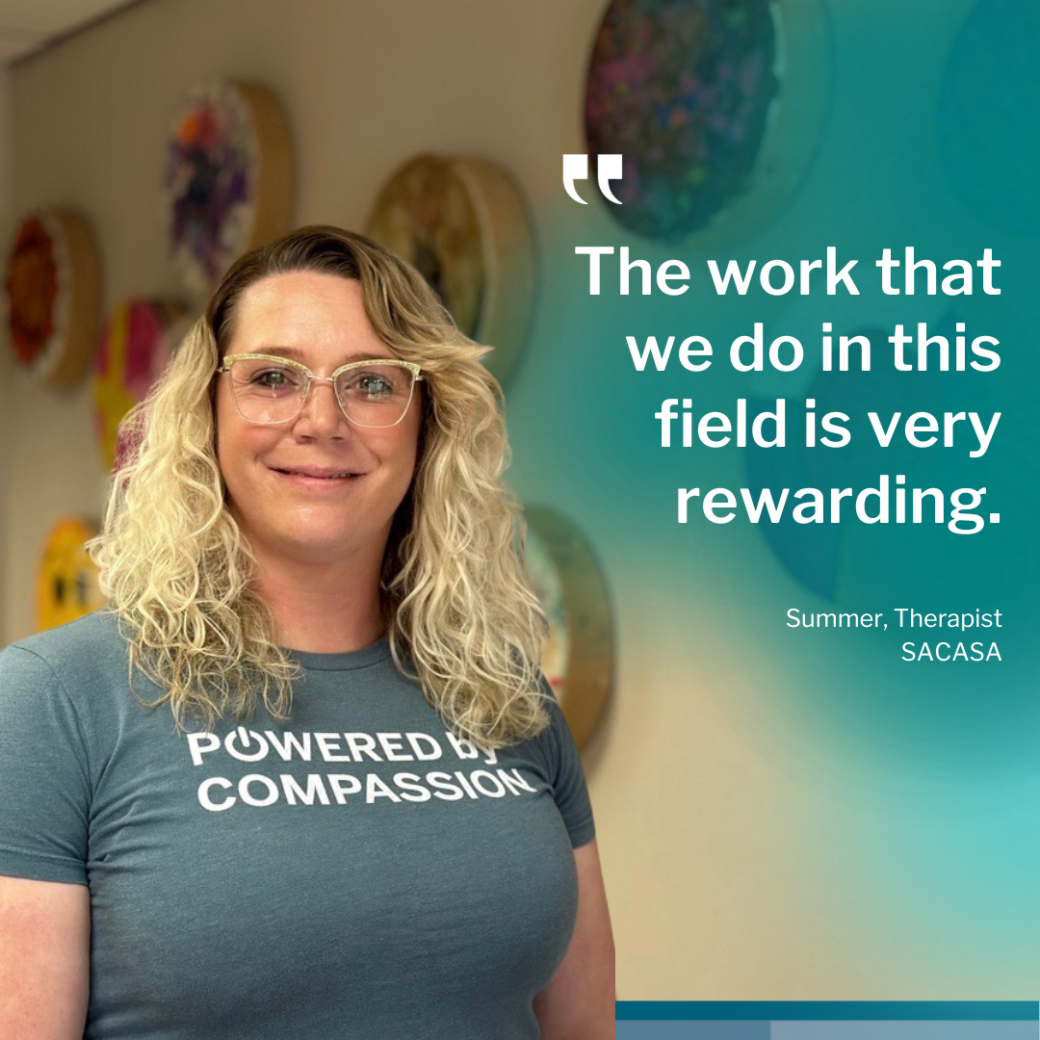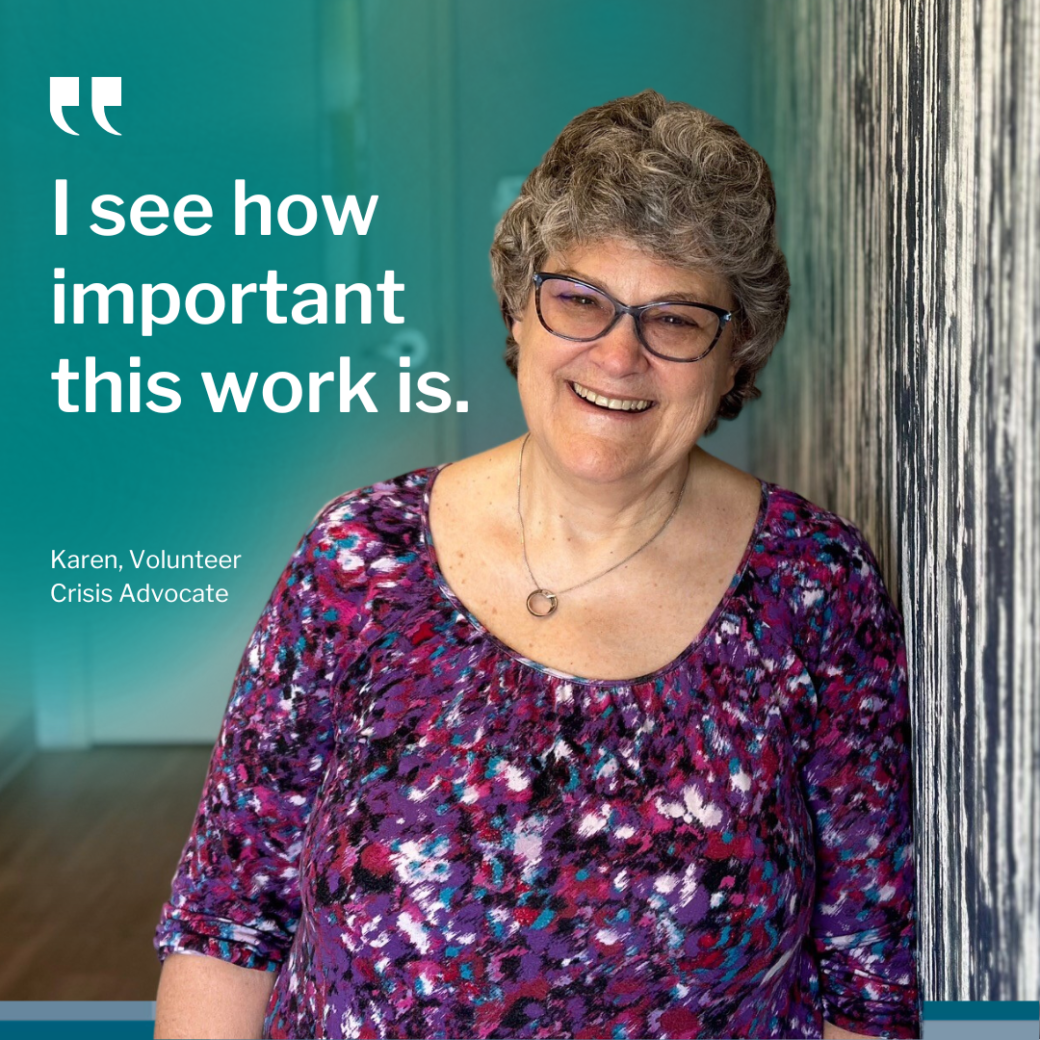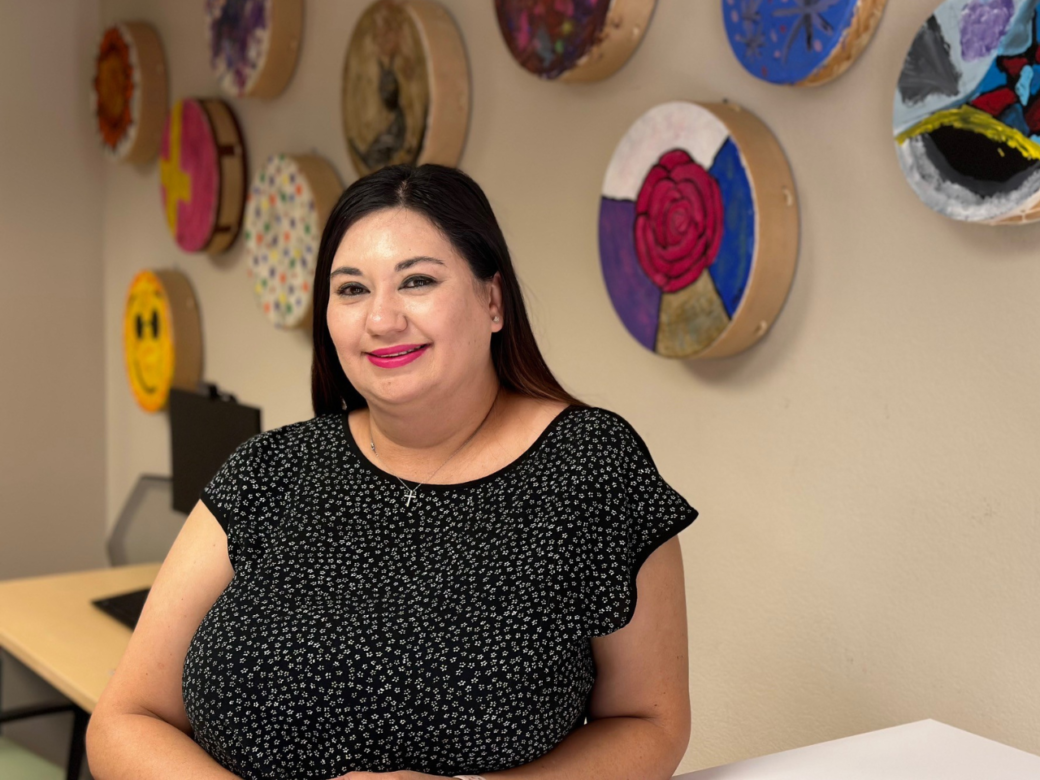
The Southern Arizona Center Against Sexual Assault (SACASA) proudly announces that Julie Konvalinka, RN, SANE-A, Senior Sexual Assault Nurse Examiner (SANE), has been recognized as a Fab 50 Nurse in Tucson for her outstanding contributions to the field of nursing and her exceptional leadership in providing care for survivors of sexual assault and intimate partner violence (IPV).
For Julie, becoming a nurse was a dream since childhood. Now, with nearly two decades of experience at the frontline of healing, her journey as a nurse has been a testament to her resilience and passion. From balancing the roles of a single mother to the demanding nature of emergency care, her purpose remains unwavering: to bring comfort and aid to those in need.
Her dedication extends beyond patient care; she actively mentors both new and experienced SANEs, ensuring they acquire the necessary skills to deliver compassionate care. Her leadership has led to significant improvements in the acute care of survivors of sexual assault and IPV, including enhancements in the Medical Forensic Examination (MFE) process and the expansion of SANE services in the community.
In addition to her role at SACASA, Julie plays a pivotal role in educating nurses regionally as a guest trainer for the UArizona SANE Program. She is actively engaged in professional organizations such as the Arizona Chapter of the International Association of Forensic Nurses, advocating for policy changes to improve the post-assault experiences of survivors and enhance the profession's exposure.
Julie envisions a world where all survivors of violent victimization receive the support and care they need, and she tirelessly works towards this goal through her leadership.
"We are thrilled to see Julie recognized as a Fab 50 Nurse," said SACASA Director Katyln Monje, LMSW, BHP. “As a skilled SANE and former paramedic, she has witnessed firsthand the consequences of violence and trauma and is dedicated to being a voice and source of support and warmth for these particularly vulnerable and often marginalized patients. We are so grateful to have her serving our Southern Arizona community.”
“This recognition comes as a surprise,” said Julie. “I work without expectation of recognition. In a town with so many qualified nurses doing influential work, I am beyond grateful to be acknowledged for my contributions.”
Hosted by the Tucson Nurses Week Foundation, this award celebrates excellence among Tucson’s nursing professionals. Chosen by their peers from across Tucson, the Fabulous 50 nurses stand out for their exemplary role to both the community and the nursing profession. Learn more>>



